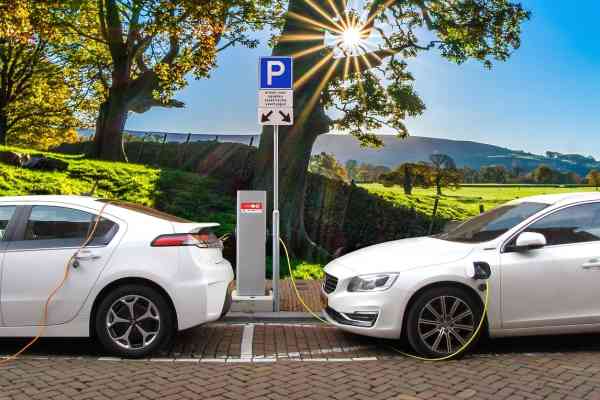July 21st, 2025 | 07:00 CEST
The end of combustion engines? Why Volkswagen, dynaCERT, and Daimler Truck are still cashing in on cleantech
The mobility industry is undergoing a significant upheaval. Stricter CO2 limits are forcing automotive giants and, above all, the transportation industry to undergo a radical transformation. Transportation accounts for approximately 25% of the world's total emissions. The EU is pushing ahead with strict decarbonization targets. By 2030, new vehicles and trucks will have to emit 55% less CO2. Companies are running out of time. Innovations must pay off, or they are out of the game. Volkswagen is revolutionizing fleet emissions by pushing ahead with electromobility, dynaCERT is optimizing existing diesel engines, and Daimler Truck is driving sustainable logistics forward with electric and hydrogen powertrains.
time to read: 4 minutes
|
Author:
Armin Schulz
ISIN:
VOLKSWAGEN AG VZO O.N. | DE0007664039 , DYNACERT INC. | CA26780A1084 , Daimler Truck Holding AG | DE000DTR0013
Table of contents:

"[...] The VERRA certification adds credibility to dynaCERT's emission reduction technologies by demonstrating compliance with internationally recognized standards for carbon emissions reductions and sustainable development. [...]" Jim Payne, CEO, dynaCERT Inc.
Author
Armin Schulz
Born in Mönchengladbach, he studied business administration in the Netherlands. In the course of his studies he came into contact with the stock exchange for the first time. He has more than 25 years of experience in stock market business.
Tag cloud
Shares cloud
Volkswagen – A catch-up race with obstacles
Volkswagen's latest quarterly figures show a familiar pattern. Revenue climbed by 3%, but operating profit fell sharply. This was due to special items totaling around EUR 1.1 billion, including provisions for CO2 targets and restructuring costs: a classic cyclical development, but a painful one. The balance sheet remains robust with just under EUR 37 billion in cash and cash equivalents. The automotive division is sticking to its forecast of up to 5% revenue growth in 2025, but tariff uncertainties in the US remain a Sword of Damocles. In summary, stability is there, but the pressure on profits remains real.
The Company is responding to challenges such as the slump in its Chinese business and the tough EV transition with clear steps. The "In China, for China" strategy aims to deliver tailor-made models from 2026, supported by the partnership with XPENG. Even more significant is the up to USD 5.8 billion Rivian alliance, which aims to close software gaps and provide access to modern e-architecture. At the same time, VW is expanding its BEV presence in Europe, with deliveries growing by 75% in the second quarter, while combustion engines continue to dominate in China. The goal is clear: the Company wants to increase flexibility where the market demands it.
Volkswagen is on solid financial footing. The balance sheet shows a price-to-book ratio of only 0.25. On the one hand, this reflects massive skepticism, but on the other hand, it provides a buffer. Even forced sales of assets such as plants could release considerable value. The mix of a strong industrial network and financial services has a stabilizing effect. However, political risks, pressure from China, and ongoing investments in transformation remain stumbling blocks. Anyone getting in here is betting on a turnaround with a long time horizon. The stock currently costs EUR 89.98.
dynaCERT – Emission reduction for diesel engines gains momentum
A French port is now relying on retrofit technology from dynaCERT. In the port of Rochefort-Tonnay-Charente, a crane has been equipped with the HydraGEN™ system, which reduces emissions from diesel engines while also lowering fuel consumption. Following successful tests since December 2024, the port administration plans to retrofit all five cranes this year. The investment of EUR 58,000 per crane is aimed at reducing greenhouse gas emissions and operating costs, and is expected to pay for itself in under a year. The Nouvelle-Aquitaine region is providing financial support for the project, which it sees as a step toward greater competitiveness and sustainability. This has opened the door to the French market for local distribution partner IPMD SAS.
The technology is well-engineered: a compact electrolyzer installed on board generates a hydrogen-oxygen mix from distilled water. This is fed into the combustion process, resulting in more efficient and cleaner combustion. The result is measurable savings in diesel consumption of between 6% and 20%, and significantly reduced pollutants such as soot particles. An added incentive comes from the CO2 credits. Fuel savings are recorded via the Hydrolytica™ telematics platform, which will soon serve as the basis for generating tradable CO2 certificates. These certificates have the potential to create a recurring revenue stream in the long term.
dynaCERT deliberately focuses on retrofitting existing machines, as the market is enormous. Installation takes just a few hours, and the low-maintenance technology is scalable. Everything from small transporters to giant mining machines can be retrofitted. Current areas of focus are heavy-duty transport, mining, power generation, and now also port infrastructure. With fresh capital of CAD 5 million from a recent financing round, the Company is driving forward its global expansion, supported by an experienced management team and a growing sales network. The share price has been trading sideways between CAD 0.13 and CAD 0.14 for a month. A share currently costs CAD 0.135.
Daimler Truck – Caution despite apparent strength
The commercial vehicle industry is facing structural challenges. In the long term, the ongoing shift from a goods-based to a service-based economy is putting downward pressure on demand for transport capacity. At the same time, expensive investments in alternative drive systems such as electric trucks and hydrogen are forcing high expenditures on manufacturers without their shareholders reaping the full social benefits. Added to this is the potential disruption from autonomous vehicles, which tech giants are investing heavily in. Although transportation remains essential, the industry is on thin ice.
Daimler Truck was recently considered a relatively stable anchor in the sector. Its strong focus on North America, with local production in seven US plants, offered protection from trade conflicts, and the Company was able to benefit from US infrastructure programs. Its broad presence in the emerging Asian market and more disciplined capital allocation through strategic partnerships also spoke in the Company's favor. It appeared attractive compared to higher-valued competitors.
Despite a decline in revenue in the last quarter, the stock is holding up surprisingly well. The announced job cuts of 2,000 in North America and 5,000 in Germany by 2030 indicate that the Company wants to reduce costs. Political uncertainty, punitive tariffs, changing environmental regulations, and delayed infrastructure funding are currently weighing on planning security. The current valuation now appears fair, but no longer cheap. Caution is advised given the unclear drivers of recent performance and ongoing headwinds in industry. The stock is currently trading at EUR 40.08.
The mobility transition is driving cleantech innovation – and creating new winners. Volkswagen is pushing ahead with its electric conversion with billion-dollar alliances such as XPENG and Rivian, but continues to struggle with profit pressure and risks in China. dynaCERT is revolutionizing existing fleets. With HydraGEN™, the Canadians are reducing diesel consumption and emissions in cranes and trucks, as demonstrated by the French port project, and generating CO2 certificates in the process. Daimler Truck is attempting to weather the industry turmoil through cost discipline and a focus on North America. The Company is banking on hydrogen and electric drives. All three companies demonstrate that those who implement decarbonization economically can secure relevant market shares, even as the era of combustion engines comes to an end.
Conflict of interest
Pursuant to §85 of the German Securities Trading Act (WpHG), we point out that Apaton Finance GmbH as well as partners, authors or employees of Apaton Finance GmbH (hereinafter referred to as "Relevant Persons") currently hold or hold shares or other financial instruments of the aforementioned companies and speculate on their price developments. In this respect, they intend to sell or acquire shares or other financial instruments of the companies (hereinafter each referred to as a "Transaction"). Transactions may thereby influence the respective price of the shares or other financial instruments of the Company.
In this respect, there is a concrete conflict of interest in the reporting on the companies.
In addition, Apaton Finance GmbH is active in the context of the preparation and publication of the reporting in paid contractual relationships.
For this reason, there is also a concrete conflict of interest.
The above information on existing conflicts of interest applies to all types and forms of publication used by Apaton Finance GmbH for publications on companies.
Risk notice
Apaton Finance GmbH offers editors, agencies and companies the opportunity to publish commentaries, interviews, summaries, news and the like on news.financial. These contents are exclusively for the information of the readers and do not represent any call to action or recommendations, neither explicitly nor implicitly they are to be understood as an assurance of possible price developments. The contents do not replace individual expert investment advice and do not constitute an offer to sell the discussed share(s) or other financial instruments, nor an invitation to buy or sell such.
The content is expressly not a financial analysis, but a journalistic or advertising text. Readers or users who make investment decisions or carry out transactions on the basis of the information provided here do so entirely at their own risk. No contractual relationship is established between Apaton Finance GmbH and its readers or the users of its offers, as our information only refers to the company and not to the investment decision of the reader or user.
The acquisition of financial instruments involves high risks, which can lead to the total loss of the invested capital. The information published by Apaton Finance GmbH and its authors is based on careful research. Nevertheless, no liability is assumed for financial losses or a content-related guarantee for the topicality, correctness, appropriateness and completeness of the content provided here. Please also note our Terms of use.




